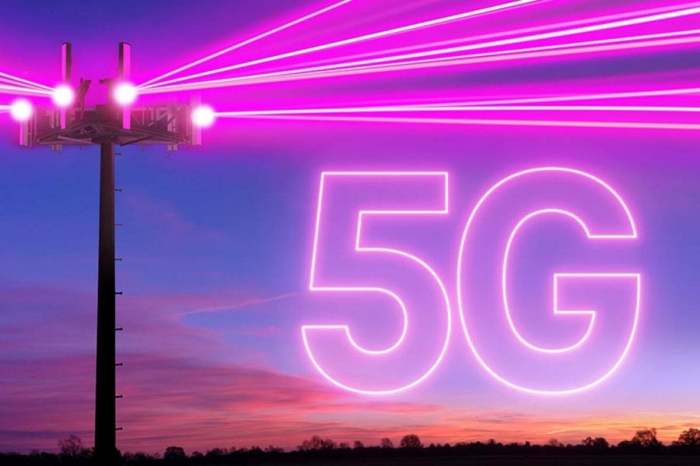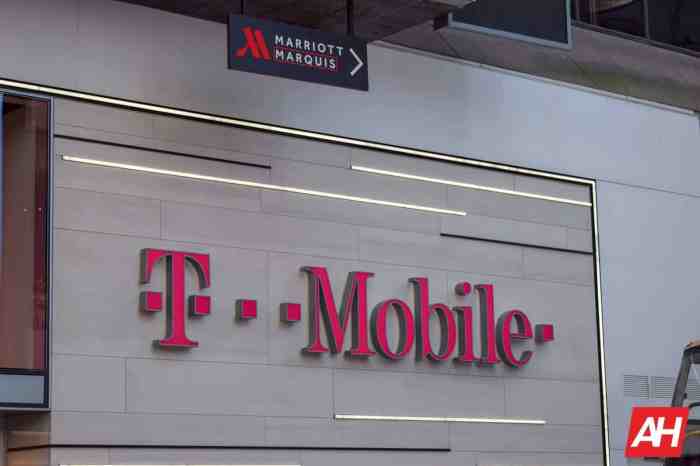T mobile 5g launch postponed second half of 2019 – T-Mobile 5G launch postponed second half of 2019 – sounds like a major bummer, right? Imagine the hype, the promises of blazing-fast speeds, and then… silence. This wasn’t just a minor hiccup; it sent ripples through the telecom industry, raising questions about T-Mobile’s strategy, the complexities of 5G deployment, and the overall race to dominate the next-gen network. Let’s dive into what went wrong, what it meant for T-Mobile, and what we can learn from this tech timeline twist.
The planned rollout for the second half of 2019 aimed to establish T-Mobile as a 5G leader, utilizing specific spectrum bands and network architecture. However, unforeseen challenges – from regulatory hurdles to technical snags – forced a delay. This impacted not only T-Mobile’s market positioning but also investor confidence and, of course, the eager anticipation of customers. The story unfolds with a mix of ambitious goals, unexpected setbacks, and the eventual (hopefully successful) recovery.
Reasons for the Postponement
T-Mobile’s 5G launch delay in the second half of 2019 wasn’t a simple case of missed deadlines. Several interconnected factors contributed to the pushback, highlighting the complexities involved in deploying a nationwide next-generation network. Understanding these reasons provides valuable insight into the challenges faced by telecom giants in their race to 5G dominance.
The delay stemmed from a confluence of factors, ranging from regulatory complexities to technical hurdles and infrastructure limitations. These weren’t isolated problems but rather intertwined challenges that ultimately impacted the rollout timeline. The situation underscores the significant investment and meticulous planning required for successful 5G deployment.
Regulatory Hurdles and Spectrum Acquisition
Securing the necessary spectrum licenses to operate a 5G network is a crucial, and often lengthy, process. Navigating regulatory approvals, bidding processes, and potential legal challenges can significantly delay project timelines. T-Mobile, like other carriers, likely faced delays in obtaining the appropriate spectrum allocations, especially considering the high demand for the frequencies most suitable for 5G. This process involves intricate negotiations with government agencies, often subject to political and economic considerations, further extending the timeframe. The acquisition of sufficient spectrum at favorable prices and in desirable locations is paramount for optimal 5G coverage and performance. For example, the auctioning of specific 5G-suitable spectrum bands can be highly competitive, driving up prices and potentially delaying deployment plans for companies unable to secure the necessary resources in a timely manner.
Technical Difficulties and Infrastructure Limitations
Beyond regulatory hurdles, the sheer technical complexity of 5G deployment presents significant challenges. Building a robust 5G network requires substantial investment in new infrastructure, including the deployment of small cells, massive MIMO antennas, and advanced core network equipment. T-Mobile may have encountered unforeseen technical difficulties in integrating these new technologies, optimizing network performance, or ensuring seamless interoperability with existing 4G infrastructure. This could involve issues with software integration, hardware compatibility, or unforeseen limitations in existing network architecture. Furthermore, the need for widespread upgrades to existing infrastructure, such as fiber optic backhaul, adds to the logistical and technical complexities of the rollout. Imagine the challenge of coordinating the installation of thousands of small cells across diverse geographical locations, each requiring site acquisition, permitting, and meticulous installation.
Examples of Similar Delays in 5G Rollouts
T-Mobile’s experience isn’t unique. Many other telecom companies globally have experienced delays in their 5G rollout plans. For example, some carriers have encountered difficulties in securing sufficient spectrum, facing delays in regulatory approvals, or struggling with integrating new technologies into their existing networks. These delays underscore the inherent difficulties in transitioning to a new generation of mobile technology, requiring careful planning, significant investment, and effective coordination across various teams and stakeholders. The challenges faced by these companies often mirrored T-Mobile’s, highlighting the common hurdles encountered in the complex process of 5G network deployment. The scale and complexity of the undertaking necessitate meticulous planning and a robust risk mitigation strategy to avoid significant delays.
T-Mobile’s Response and Subsequent Actions: T Mobile 5g Launch Postponed Second Half Of 2019
T-Mobile’s delayed 5G launch in the latter half of 2019 wasn’t met with silence. The company had to navigate a tricky PR landscape, addressing investor concerns and managing customer expectations. Their response involved a multi-pronged approach encompassing transparent communication, strategic adjustments, and a focus on regaining trust.
The postponement announcement itself was delivered via official press releases and statements from T-Mobile executives. These communications acknowledged the delay, citing the complexities of integrating new technology and the need to ensure a robust and reliable network launch. The messaging focused on the long-term benefits of a carefully executed rollout rather than a rushed, potentially problematic, deployment. While specifics regarding the technical challenges were kept relatively high-level to avoid overly technical explanations for the general public, the overall tone aimed for honesty and a commitment to delivering a quality 5G experience.
T-Mobile’s Communication Strategy
T-Mobile’s communication strategy after the delay focused on transparency and managing expectations. They avoided overly technical explanations, opting instead for straightforward language emphasizing the importance of a quality 5G network over speed. This involved regular updates to investors and press releases to keep the public informed of progress. Social media engagement also played a crucial role, with T-Mobile actively responding to customer queries and addressing concerns. The company’s overall message consistently reiterated its commitment to delivering a superior 5G experience, even if it meant a delay.
Changes to the 5G Rollout Strategy
The delay prompted a reassessment of T-Mobile’s 5G rollout strategy. While the exact details weren’t publicly disclosed in great depth, it’s reasonable to assume that the company likely revisited its network infrastructure plans, optimizing deployment schedules, and potentially refining its technological approach. This could have involved enhancing testing procedures, refining software, and allocating more resources to key areas. The focus shifted towards a more phased and controlled rollout, prioritizing network stability and coverage over rapid expansion. This cautious approach was likely influenced by the desire to avoid repeating the issues that led to the initial delay. For example, the company may have allocated more time for rigorous testing of the 5G network in specific areas before expanding to a larger scale.
Addressing Investor and Customer Concerns
The delay naturally raised concerns among investors and customers. To address investor concerns, T-Mobile likely emphasized its long-term vision and the potential for significant returns once the 5G network was successfully launched. Detailed presentations and financial reports would have provided data supporting the company’s claims of a sound strategy. To address customer concerns, T-Mobile likely highlighted the improved quality and reliability that the delay would facilitate, emphasizing that a superior network experience was worth the wait. They might have offered incentives or special promotions to retain customers and showcase their commitment to customer satisfaction.
Timeline of Events Following the Postponement, T mobile 5g launch postponed second half of 2019
Following the postponement announcement, T-Mobile engaged in a period of internal review and adjustments. While a precise, publicly available timeline isn’t readily accessible, it’s likely that the following events unfolded: Initial announcement of the delay (late 2019), internal reassessment of the rollout strategy, enhanced testing and refinement of the 5G network, updated communication with investors and customers, gradual rollout of 5G services starting in select areas, and ongoing updates regarding progress. The exact dates for each of these phases would require access to T-Mobile’s internal documents and communications.
The delayed T-Mobile 5G launch in the second half of 2019 serves as a stark reminder that even the most meticulously planned technological advancements can encounter unforeseen obstacles. While the initial postponement undoubtedly caused ripples of concern, T-Mobile’s subsequent actions and the eventual launch (albeit later) offer valuable insights into navigating the complexities of large-scale network deployments. The tale highlights the delicate balance between ambition, realistic timelines, and the importance of transparent communication with stakeholders. It’s a story of setbacks, adjustments, and the persistent pursuit of technological progress – a narrative that resonates far beyond the telecom industry itself.
 Tech Nest Online Berita Teknologi Terbaru
Tech Nest Online Berita Teknologi Terbaru

